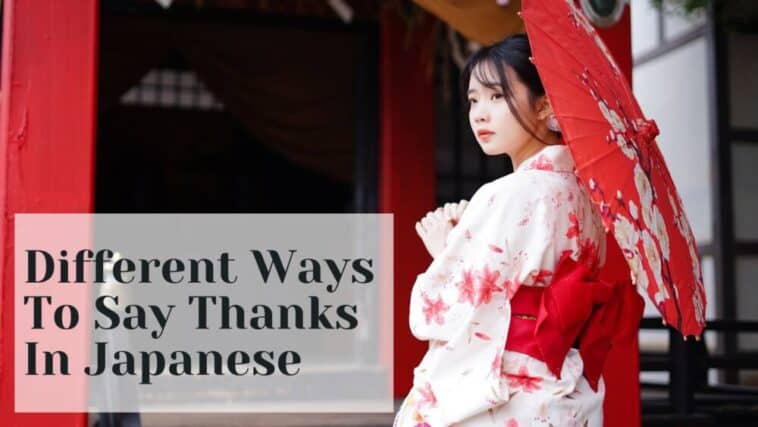Here are the Different Ways To Say Thanks In Japanese. Check it out!
A simple “arigatou” goes a long way, but mastering Japanese gratitude goes deeper. This guide explores 10 expressions, from casual “thanks” to heartfelt appreciation, ensuring you convey the perfect level of politeness in every situation.
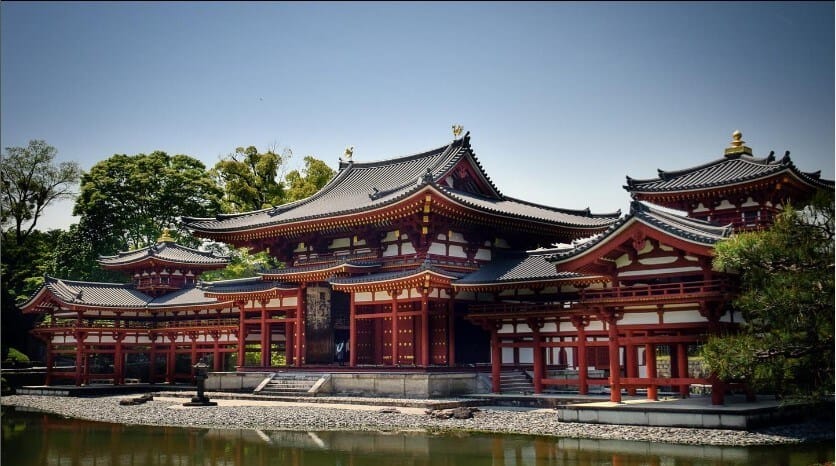
- Related: Meaning Of Maji In Japanese
- Related: Hanakotoba: Meaning Of Flowers In Japanese
- Related: What Is The Meaning Of Doumo?
Different Ways To Say Thanks In Japanese
While “arigatou (ありがとう)” is the go-to for “thank you” in Japanese, the language offers a range of expressions depending on formality and how much you want to emphasize your gratitude. Here’s a breakdown of some options:
- Casual Thanks:
- Arigatou (ありがとう): Basic “thank you” for friends, family, or strangers.
- Domo (どうも): A casual “thanks” or “you’re welcome.”
- Sankyu (サンキュ): Very informal “thanks,” similar to “thanks” in English.
- Azasu (あざす): Extremely informal “thanks,” mostly used by young people.
- Polite Thanks:
- Arigatou gozaimasu (ありがとうござます): The most common polite “thank you.”
- Doumo arigatou (どうもありがとう): Literally “thank you very much” (more casual than adding “gozaimasu”).
- Hontou ni arigatou gozaimasu (本当にありがとうござます): “Thank you very much, truly” (adds emphasis).
- Formal Thanks:
- Arigatou gozaimashita (ありがとうございました): “Thank you” for past actions or favors.
- Haisha moushiagemasu (拝謝申し上げます): Extremely humble and formal “thank you,” used in business settings or written communication.
Meaning Of Doumo Arigatou Gozaimasu

A lot of people mistake the spelling of “Doumo Arigatou” (どうもありがとう) for Domo Arigato and it’s the phrase usually looked up by the rest of the world. It’s not wrong but it’s just a different romanization of the original word.
The word “Doumo” (どうも) is an adverb and it is basically used to express meekness and to give the impression of what the person is about to say next is a lot or he/she means it a lot.
For “Arigatou” (ありがとう), it comes from the adjective “arigatai” (有難い) which means gratitude or grateful; this also gave way to the adverbial conjugation of “arigataku” (有り難く). The root word of “Arigatou” (ありがとう) is much more complex than how we use it now.

Ari (あり) combined with Katashi (かたし) turns into Arigatashi (ありがたし), which turns into Arigataku (ありがたく), and then Arigatau (ありがたう), then finally, Arigatou (ありがとう).
The use of “Gozaimasu” (ございます) is purely for honorifics and respect; it means the same as the more informal honorific word “Desu” (です) but they’re both used to show that you look up to the person you are talking to.
Telling someone “Doumo Arigatou” (どうもありがとう) means that you’re showing a lot of gratitude and thanks, so much that it can’t be topped off by any action or reward. In a way, saying “Doumo Arigatou” (どうもありがとう) is not only a form of thanking but giving the person high praise.
On a side note, the word “Doumo” (どうも) can also mean things like the phrases “somehow”, “although”, and “no matter how difficult”. “Doumo” (どうも) can also be used in the form of greetings like “hello” and “goodbye”.
In addition, “Doumo” (どうも) can also be used as a compliment to show appreciation to someone. “Hai Doumo” (はい どうも) is usually uttered during meetings or presentations and it basically means “hello everyone!”.
Gozaimasu Vs Gozaimashita
When speaking with a close friend or peer with the same age group as you, it’s normal to just use “Arigatou” (ありがとう) to say thanks but the best way to say thanks for someone that you don’t know is “Arigatou Gozaimasu” (ありがとう ございます), but how do we know when to use “Gozaimasu” (ございます) or “Gozaimashita” (ございました)?
If it’s in the form of present tense or future tense, the right phrase to use is “Arigatou Gozaimasu” (ありがとう ございます), but if you’re thanking someone for something in the past, the right term is “Arigatou Gozaimashita” (ありがとう ございました).
Since we usually thank people on the fly and right at the very moment, “Arigatou Gozaimasu” (ありがとう ございます) is more common to hear among the Japanese people.
Complementing The Word “Arigatou”
Now, saying “Arigatou Gozaimasu” (ありがとう ございます) is technically correct but since Japan is keen on showing respect through words and actions, we have to complement this phrase to make it sound more complete and more respectful towards other people.
For this, we usually use the whole phrase “Doumo Arigatou Gozaimasu” (どうも ありがとう ございます). Using this phrase means we’re showing the highest level of appreciation and respect for the person. This is best to use for the elders and strangers that you interact with on a daily.
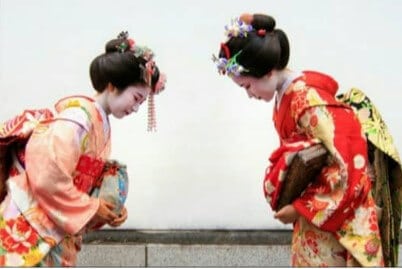
Informally, it’s normal among Japanese people to use “Doumo” (どうも) to say thanks to close friends and peers but it’s important to note that this is an unacceptable way to say thanks to elders and strangers as it will come out as rude behavior and they might misinterpret it.
As mentioned earlier, “Doumo” (どうも) can mean a lot of things apart from saying thanks, and the Japanese people are critical in saying the right words and honorifics in addressing people in the hierarchical setup in their society.
Another way of thanking wholeheartedly is by adding “Hontouni” (ほんとうに) which basically means “really”.
To respond to someone giving you thanks in Japanese is by saying “Dou Itashimashite” (どう いたしまして) which means “you’re welcome”, or you can just say “iie” (いいえ) which gives the impression that what you did is just nothing or it wasn’t a big deal.
Again, it’s important to note to use “iie” (いいえ) informally as it also means no in the Japanese language. It might also come out rude to the person giving thanks to you if you just use “iie” (いいえ).
Summary Of Doumo Arigatou Gozaimasu
Just with the words and phrases mentioned above, we could already say thanks in Japanese in 10 different ways. It’s just up to the situation and who you’re giving appreciation to on what phrase to use.
- “Doumo Arigatou Gozaimasu” (どうも ありがとう ございます)
- “Hontou ni Arigatou Gozaimasu” (ほんとう に ありがとう ございます)
- “Arigatou Gozaimasu” (ありがとう ございます)
- “Doumo” (どうも)
- “Arigatou” (ありがとう)
- “Hontou ni Arigatou” (ほんとう に ありがとう)
- “Arigatou Gozaimashita” (ありがとう ございました)
- “Doumo Arigatou Gozaimashita” (どうも ありがとう ございました)
- “Hontou ni Arigatou Gozaimashita” (ほんとう に ありがとう ございました)
- Verbs in the form T + “Kurete Arigatou” (くれて ありがとう)
For #10, the phrase “Kurete Arigatou” (くれて ありがとう) lets you thank someone after using a verb. An example and common phrase for this is “Tetsudatte Kurete Arigatou” (てつだって くれて ありがとう) which means “Thank you for helping me.”
Thanks In Various Japanese Dialects
Given the rich culture and history of Japan, each region and place have a unique and different way of showing thanks and appreciation to someone. We got it all covered and we listed it down for you.
| Province / Place of Origin | Romaji / Word | Kanji |
| Aichi | Katashikenea | 型しけねぁ |
| Akita | Arigatodanshi | ありがとだんし |
| Aomori | Oarinandogoshi | おありなんどごし |
| Chiba, Saitama | Sumaneene | すまねーね |
| Ehime, Shimane, Tottori | Dandan | だんだん |
| Fukui, Toyama, Ishikawa | Kinodokuna | 気の毒な |
| Fukui | Yorokobidegozaimashita | よろこびでございました |
| Fukuoka | Ranranookii | らんらんおーきー |
| Fukushima | Arigadonae | ありがどなえ |
| Gifu | Yoshitayo | よしたよ |
| Gunma | Gottuosandesu | ごっつぉさんです |
| Hiroshima | Arigatoogozanshita | ありがとーござんした |
| Hokkaido | Arigadoosan | ありがどーさん |
| Hyogo | Ookiniarigatohan | おーきにありがとはん |
| Ibaraki | Arigadogozansu | ありがどござんす |
| Iwate | Oarigadogansu | おありがどがんす |
| Kagawa | Okamaina | おかまいな |
| Kagoshima | Okamaina | おかまいな |
| Kochi | Tamarumonkanoo | たまるもんかのー |
| Kumamoto | Choojyoo | ちょーじょー |
| Kyoto | Ookinisunmahen | おーきにすんまへん |
| Mie | Ookinna | おーきんな |
| Miyagi | Arigadogozarisuta | ありがどござりすた |
| Miyazaki | Okkin | おっきん |
| Nagano | Ogottsuama | おごっつあま |
| Nagasaki | Kataigenagozatsutazo | かたいげなござったぞ |
| Nara | Ookiniyoo | おーきによー |
| Niigata | Ogottsuosandesu | おごっつぉさんです |
| Oita | Ookeniranran | おーけにらんらん |
| Okinawa | Niheedeebiru | にへーでーびる |
| Osaka | Ookini | おーきに |
| Saga | Ookin | おーきーん |
| Shiga | Gottuosandesu | ごっつぉさんです |
| Shizuoka | Sunmahendoshita | すんまへんどした |
| Tochigi | Arigadoogozeemasu | ありがどーごぜーます |
| Tokyo, Kanagawa, and Tokushima | Arigatou | ありがとう |
| Wakayama | Ookiniwariyoo | おーきにわりよー |
| Yamagata | Oshooshina | おしょーしな |
| Yamaguchi | Arigatou Gozaimashita | ありがとーござりました |
| Yamanashi | Arigatoogoisu | ありがとーごいす |
Other Ways To Say Thanks In Japanese
There are many more different ways of saying thanks aside from the traditional “Arigatou Gozaimasu” (ありがとう ございます), and it actually depends on the situation you’re in on what phrase to use to the other person/people.
In the work environment, in the field, or in the office, the expression “Otsukaresama Deshita” (おつかれさま でした) is used and its translation means “Thank you for your work” or “Thank you for your effort”.
You can also use the term “Goukurosama” (ごうくろさま) which also translates to “Thank you for your hard work”.
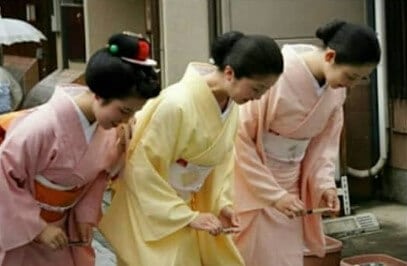
Using apologetic words like “Sumimasen” (すみません) can be counted as well because it can mean “Thank you and sorry that you have to do this”.
Another term is “Moushiwakenai” (もうしわけない) and this means “I’m sorry but you can pass your idea or pitch to the next person”.
Saying Thanks On Special Occasions
If you want to tell the person that their effort is more than enough and they don’t need to do anything else or more, you can use the word “Kekkou” (けっこう). It’s a formal and nice way of rejecting something or a thought.
On the side note, “Kekkou” (けっこう) can also mean that the food or beverage you ate was delicious or if you saw something beautiful.
“Okagesamade” (おかげさまで) is used to ask the person how he/she is doing in life but it can also pass of as a way of thanking someone whenever it’s used in a conversation.
If you want to thank someone for waiting and apologize for causing a delay or disturbance, you can use the phrase “Omatase Shimashita” (おまたせ しました).
Another way of rejecting someone or a thought is the word “Daijoubu” (だいじょうぶ). This can also mean “No thank you”.
“Kanshashimasu” (かんしゃします) could be another term to use to express gratitude and thanks.
If you just received a hearty and mouth watering meal, you can say the phrase “Gochisousama Deshita” (ごちそうさま でした). This is highly appreciated by chefs and cooks if they hear it because it means you enjoyed their food.
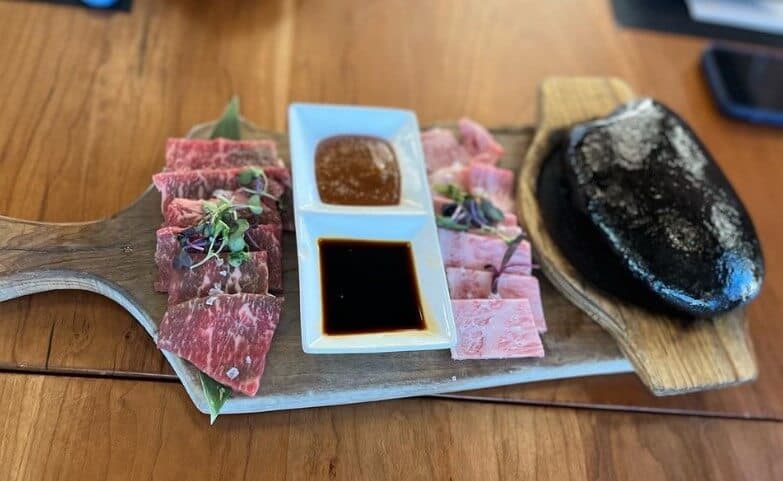
On the flipside, when you’re about to eat and you want to say thanks to whoever served and cooked you the food, you can say “Itadakimasu” (いただきます).
Different Ways To Say Thanks In Japanese
Without a doubt, the Japanese people are very respectful and appreciative of one another and they have a lot of ways to say and show this. This is just one of the many amazing qualities that Japanese people have as a part of their culture.
We hope that this article helped in determining the different ways of saying thanks in Japanese. On your visit to Japan or future interactions with Japanese people, we hope that you can use one of these ways to thank them.
Also Read
- Meaning Of Mono And Koto In Japanese And The Difference Between Them
- Meaning Of Ara Ara In Japanese
- Meaning Of Kokoro | A Japanese Word That Combines Heart, Mind And Spirit


